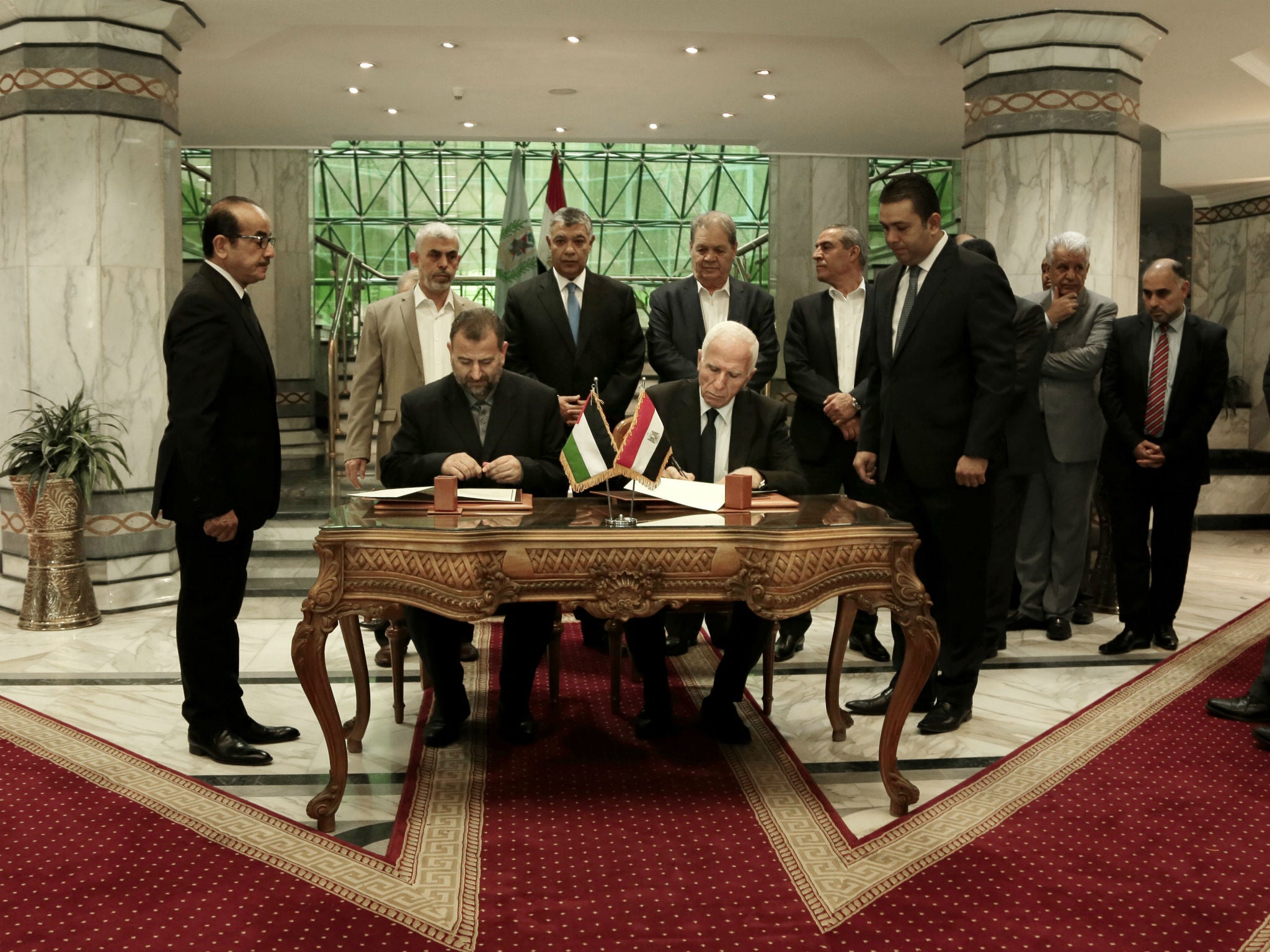Neither Hamas or Fatah want to give up authority meaning the new Palestinian unity deal may not change much
Analysis: Those inside the West Bank and Gaza will welcome anything that changes their situation, but divisions both internally and internationally will make progress difficult

Your support helps us to tell the story
From reproductive rights to climate change to Big Tech, The Independent is on the ground when the story is developing. Whether it's investigating the financials of Elon Musk's pro-Trump PAC or producing our latest documentary, 'The A Word', which shines a light on the American women fighting for reproductive rights, we know how important it is to parse out the facts from the messaging.
At such a critical moment in US history, we need reporters on the ground. Your donation allows us to keep sending journalists to speak to both sides of the story.
The Independent is trusted by Americans across the entire political spectrum. And unlike many other quality news outlets, we choose not to lock Americans out of our reporting and analysis with paywalls. We believe quality journalism should be available to everyone, paid for by those who can afford it.
Your support makes all the difference.The unity agreement between Hamas and Fatah under which they will set up a joint administration that will, among other things, control Gaza is going to be regarded with scepticism in the region. The accord signed in the main intelligence headquarters in Cairo has come about because both the Palestinian sides are weak and have not discussed many divisive issues, but they do not want to be seen as blocking a deal.
The Palestinians in Gaza and the West Bank have very little freedom of action these days, far less than 40 years ago when they were an insurgent movement based successively in Amman, Beirut and Tunis. Driven from capital to capital, they tried to avoid becoming the permanent proxy of any single power. But the war in Iraq since 2003, and conflicts in Arabs states which once backed different Palestinian factions since the so-called Arab Spring of 2011, have pushed the Palestinian issue well down the international agenda.
Hamas has been isolated, subject to punitive sanctions and without regional allies. It will hope to use the new accord to expand its role on the West Bank and play a wider role that it has been able to do since 2007 when, after defeating Fatah in an election the previous year, it was denounced as a terrorist movement by Israel, the US and the western allies.
Gaza’s two million people have lived in conditions of near total siege ever since, a tight economic blockade imposed by Israel which means shortages of electricity, drinkable water and, above all, jobs which have left 80 per cent of the population reliant on international aid.
In these circumstances, almost any change should be a change for the better, though Palestinian experience over the last century does not confirm this. People in Gaza will hope for a degree of access to the outside world through the Rafah crossing into Egypt. But crucial issues remain unsettled such as the future role of the 25,000 Hamas fighters, giving a sense that neither Hamas nor Fatah want to give up real authority.
A previous accord in 2011 was denounced by Israel and was never implemented, but the present one may have more chance because it is backed by the US, Egypt, Saudi Arabia, UAE and, according to most reports, by Israel.
The so-called peace process has long been dead in the water primarily because the balance of power between Israel and the Palestinians is so decisively in favour of Israel that it is under no pressure to compromise. Israeli influence in Washington has never been higher than under President Trump, as shown by the US withdrawal from the UN cultural body Unesco, citing “anti-Israel bias”.
For Gazans any alleviation of the conditions of siege in which they are living will be good news, but they will be dubious about the declarations of unity and cooperation between parties so deeply divided. They also know that they remain very much at the mercy of Israel and outside powers. Developments in Syria and Egypt since 2011 has left the Palestinians in Gaza and West Bank even weaker than before. The accord signed in Egypt may not change very much.
Join our commenting forum
Join thought-provoking conversations, follow other Independent readers and see their replies
Comments